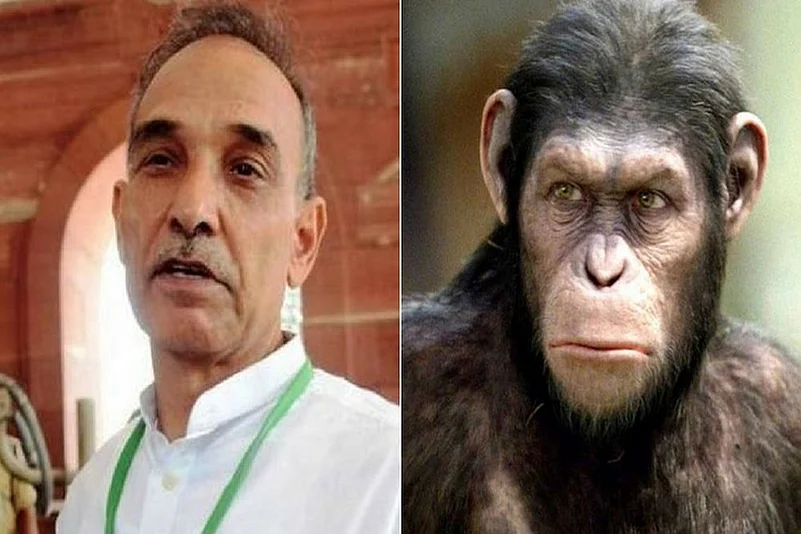To remove the "doubts being planted in the minds of the common people" about the theory of evolution, and demonstrate with evidence how humans evolved from apes, scientists from across the country are celebrating 'Darwin Week' from Monday.
Recent statements by Union minister of state for human resource development Satyapal Singh have compelled the scientific community to step out of their laboratories and raise their voices against political interference in the field of science.
Singh had stated last month that the Darwin's theory of evolution was "scientifically wrong" and proposed to drop it from the school and college curriculum.
The February 12 to 18 'Darwin Week' is being organised by The India March for Science Organising Committee and the Breakthrough Science Society.
The committee had organised a protest march in August last year demanding greater financial support for scientific research and education.
"The objective of the Darwin Week will be to remove any doubt that has been planted in the minds of the common people about Darwin's theory of evolution," Soumitro Banerjee, Associate Professor at IISER Kolkata, told PTI.
During the proposed Darwin Week, scientists will mount a special drive to reach out to the people to disseminate the Darwin's theory of organic evolution through natural selection, which states that life evolved from single celled organisms over a course of millions of years.
Through a series of workshops and seminars, scientists will assert that Darwin's theory of evolution offers the correct explanation of the observed evolution in nature and is no longer a subject of debate within the scientific community.
"A seed of doubt has been planted among the common people and students that the theory may be wrong - that it's just a theory," said Banerjee, who is the General Secretary of the Breakthrough Science Society All India Committee.
"We will go to schools and colleges and remove doubts about Darwin's theory. We will show that it is not 'just a theory', and that there are a hundred ways to prove it right," he said.
Born on February 12 in 1809, Charles Darwin is best known for his contributions to the science of evolution. He established that all species of life have descended over time from common ancestors, which means that humans and monkeys had a common ancestor at some point in history.
In a series of programmes organised in schools and colleges in different states, scientists will demonstrate with evidence how humans evolved from apes.
Apart from West Bengal, universities in Kerala, Tamil Nadu and Karnataka are also participating in the drive.
"In the current scenario, it has become important to establish that this is a very scientific theory. Whatever new developments have happened in science, have actually re- established that Darwin's theory of evolution is correct," said P P Rajeevan, a member of the Breakthrough Science Society Kerala Chapter.
According to Ashish Samanta, Treasurer of the Breakthrough Science Society West Bengal Chapter, it has become very important for scientists to become politically active.
"On August 9 this year, the first step was taken, when scientists and professors took to the streets for the first time protesting the scientific policy of the government," said Samanta.
"Still there are a large number of scientists and professors who have not come out in support. With this programme, we are also urging them to come out and protest," he said.
"Everyone maybe entitled to an opinion in a democracy, but in science you are either right or wrong. That is what makes exact sciences different from the arts - there is no subjectivity," said Ayan Bannerjee, Associate Professor at IISER.
According to him, ignorant remarks made by persons in government positions affect the scientific temperament of the citizens, which indirectly impacts the importance attached to funding research innovations in Indian universities.
(PTI)


























